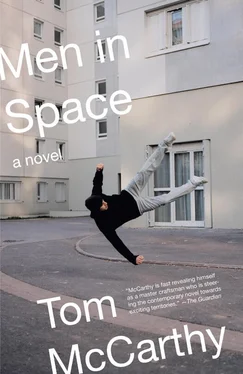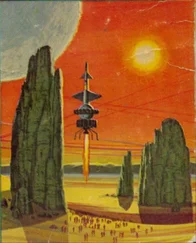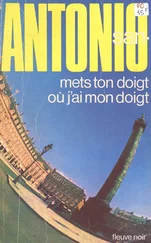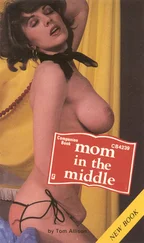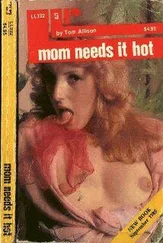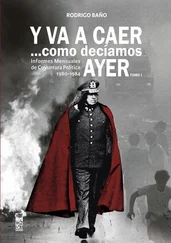“So where’s the incentive to …”
“Exactly!” he banged the counter by the window as he said this. The other customers turned round — to look, Nick presumed, at this loud Yugoslavian — until he saw ten or so uniformed officers burst out of the police station that floated like a houseboat in front of the café. Five peeled left, passed the strange blue-and-red mushroom benches on the Nieuwmarkt’s edge and raced down the Kloveniersburgwal’s far side; the other five ran to the right, crossed the bridge by De Hoogte, then cut back left so they, too, were running down the far bank of the Kloveniersburgwal, straight towards their pals. Between the two bunches of cops a small South American man was pulling himself out of the canal: no sooner had he stood up than they were on him, wrestling him to the ground.
“Did you hear the splash?” asked Sasha, all excited.
“I heard something.”
“That man has jump out of the police station.” Has jump : Nick was back with Mladen for an instant. He and Sasha went to school together: must have had the same English teacher. “He has jump out of the window into the canal, and swum to the far side. The police have captured him again, but I take my hat off to this man. He’s won a moral victory.”
Sasha’s in his second year as an art student. He’s got refugee status, like Mladen. He’s very with it: listens to Laibach, Sonic Youth, My Bloody Valentine. Over the last six months he’s been working on a performance piece involving windows: he and two collaborators bang and scrape on windows, producing sounds. He’s played a tape of one of his concerts to Nick and invited him to come to the next one, maybe even write it up for Art in Europe . On his first night in Amsterdam Nick froze because Sasha had removed, just prior to his last concert, the glass pane from one of the windows in the attic room which he’d persuaded the others in the house to let Nick live in. The next day he took Nick out to get a new one from a glazier on De Clerqstraat. When they stepped onto a tram to carry the pane home, the driver refused to leave the stop until they got off. Neither of them understood at first: the tram just stood there and a message came over the tannoy which didn’t seem prerecorded like in Prague, and all the other passengers were looking at them angrily. Eventually one of them said something to them; they told him they didn’t understand him so he said in English:
“You may not travel with the glass.”
“Why not?”
“It’s dangerous to other passengers. If there’s an accident, the glass might injure us.”
Us. As they walked the whole way back to Nieuwmarkt, taking it in turns to carry the pane, Nick remembered how Ivan had acquired this sudden interest in Frieda Kahlo around the time he was painting that odd icon painting, just before he died. He’d told everyone who came to the atelier about her accident: the tram’s pole that skewered her, the gold bag. Nick told Sasha the story, which as it turned out Sasha knew already:
“This is my point absolutely!” He spat in disgust as the tram disappeared towards the Marnixstraat. “No risk; no beauty. Holland will never have a Frieda Kahlo.”
Art in Europe has its offices on the Leidsegracht, above the centre of the Euthanasia Society. Even death is regulated here. The fourth floor’s corridor is full of stacked-up back issues of the magazine — which, it struck Nick on his first day here, can’t be a good sign, because if they’re there it means they didn’t sell. The office itself is a long room with five desks in it. There’s Julia’s, then Lucy’s, then Johanna’s, then Nick’s, then a fifth one no one uses but is still all decked out with in- and out-trays and a computer. Elijah’s, Nick called it on his first day here, which no one got.
Julia Emerson’s strange: cold and engaging at the same time. She’s from Woolwich, working class and on the rise. She’s edited other magazines before and probably won’t be with this one for too long. Lucy’s the one Nick spoke to on New Year’s Day. She must be about two years older than him: twenty-four, twenty-five. His picture of her in the broken phone box wasn’t that far off: she’s well organized and smart. She has dark, shoulder-length hair and wears velvet skirts and thick black tights that Nick would kind of like to get inside but probably won’t: she’ll end up with a gallerist, all jackets and sports cars and weekends in the country, maybe the odd sniff of coke. Johanna’s in her thirties, same as Julia. Dutch-American, a mid-Atlantic accent. She dresses even more smartly than Lucy, in shoulder pads and high-heeled boots: a professional woman. Her interest in art is social: she knows all about relations between galleries, who’s feuding with whom, what Paris thought about the way Fuchs hung the Picasso paintings lent him by the Pompidou, why So-and-So in Brooklyn won’t lend Golubs to Berlin. Lucy has a debutantish enthusiasm for art, and gushes about colour and movement from time to time. Julia’s got no interest in art at all.
Nick’s already written up two shows. There was the Kiefer installation at the Stedelijk, this giant aeroplane with old encyclopedias nestling in dried bracken behind glass panels mounted in its wings and a stuffed snake lying in its cockpit. Nick mentioned in his piece the Soviet cosmonaut stuck up in space, which Julia liked, and called the work “an allegory of the Western epistème ”, which she told him was pretentious bollocks and excised. The other show was at the Praktijk: a US artist called Daniel Todd, whose paintings had vaguely human figures looming out of muddy, neutral backgrounds. Nick worked a quote from T.S. Eliot into his review, a line from The Waste Land about dry banks and arid plains, which Julia sneered at but let stand. Today, though, he’s doing listings, which is boring as fuck. Julia found out he spoke French, German and Czech and gave him a list of galleries in those three countries, plus Austria and Switzerland, to phone up for their programmes over the next three months. The MXM is on there: that gallery in Kampa Park, by Maňásek’s mother’s place. He hasn’t phoned them yet — but he’s phoned Gábina, who wasn’t in. He’s waiting for a callback from a gallery in Cologne called Schröder.
Julia has the radio playing all day long, always the same Dutch pop station. The DJ’s voice between each track reminds Nick of Joost van Straten’s: it has the same upturn in it, as though each utterance were a question. In the white bar by Gábina’s after they’d left Maňásek’s mother’s place, Joost gave Nick his number and told him to call when he came to Amsterdam. He’s been here almost a month now; he wanted to look him up when he was at the Stedelijk but didn’t have the number on him. He’s got it here, in the black-and-red notebook he bought in London just before he left for Prague, scrawled somewhere towards the end or the middle, in some margin … He should be organized like Lucy or Johanna. Loose papers fall to the floor as he flips through the pages. He finds the number, bends to pick the papers up and is just about to call when Lucy, receiver hooked across her shoulder, tells him that she’s got a call for him and is sending it across. His own phone rings and he picks up:
“Nicholas Boardaman.”
“Hello?” It’s a man’s voice: foreign, not Dutch.
“Yes, hello.”
“That’s Nikola Boardaman?”
“Yes. Who’s that?”
“Nikola Boardaman?”
“Is that the Galerie Schröder? … Hello?” But the guy’s gone. “Who the fuck was that?” he asks Lucy. She smiles at him and shrugs.
“Swearing!” warns Julia, with her trademark air of detached irony.
“Didn’t he say?” he asks Lucy again, ignoring her.
Читать дальше
